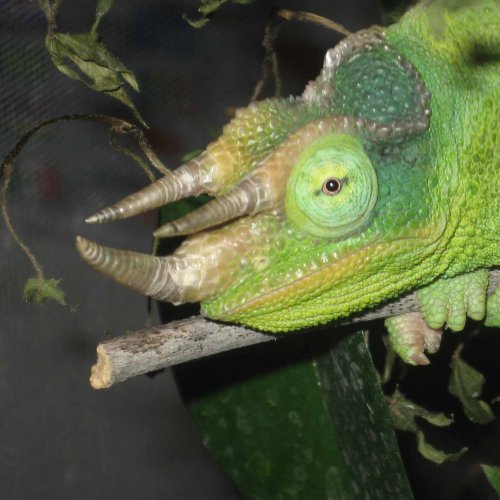Duke
New Member
When I left for Iraq (not fun), my Jackson had perfectly straight horns. Upon my return I found that his center, nose horn had turned up. I didn't think much about it until I noticed on one of the sites (I think FLA Chams) that they proudly declare straight horned Jacksons. My question is this: is an upturned horn a genetic thing or was he lacking in nutrition? Spike didn't get the "TLC" he would have had I been here, but my wife and son did feed, water, etc with plenty of instructions from me. ??
Duke
Duke




